How can you contribute to the UN Sustainable Development Goals?
Carbon Neutral
DateJune 2022
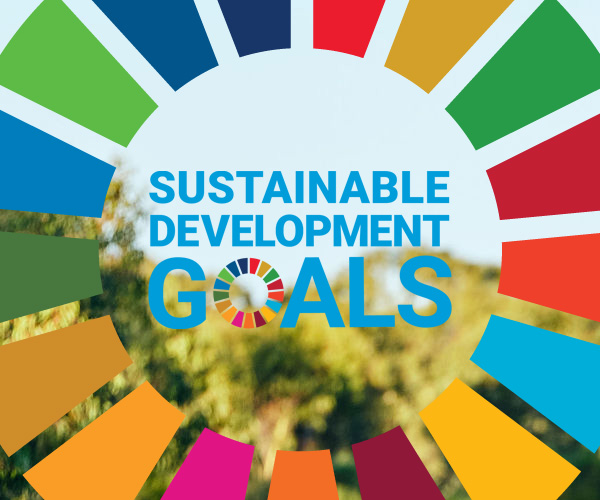
What are the United Nations Sustainable Development Goals?
The United Nations Sustainable Development Goals (UN SDGs, also known as the Global Goals) are 17 calls to action for all countries to achieve peace and prosperity for people and the planet, now and into the future.
The 17 SDGs were adopted by all UN member states in 2015 as part of the 2030 Agenda for Sustainable Development. Their development is built on decades of work by the UN and its member countries dating back to the 1992 Earth Summit in Brazil.
The aim of the Global Goals is to end poverty by improving health and education, reducing inequality and spurring economic growth – whilst tackling the climate crisis and preserving our precious biodiversity.
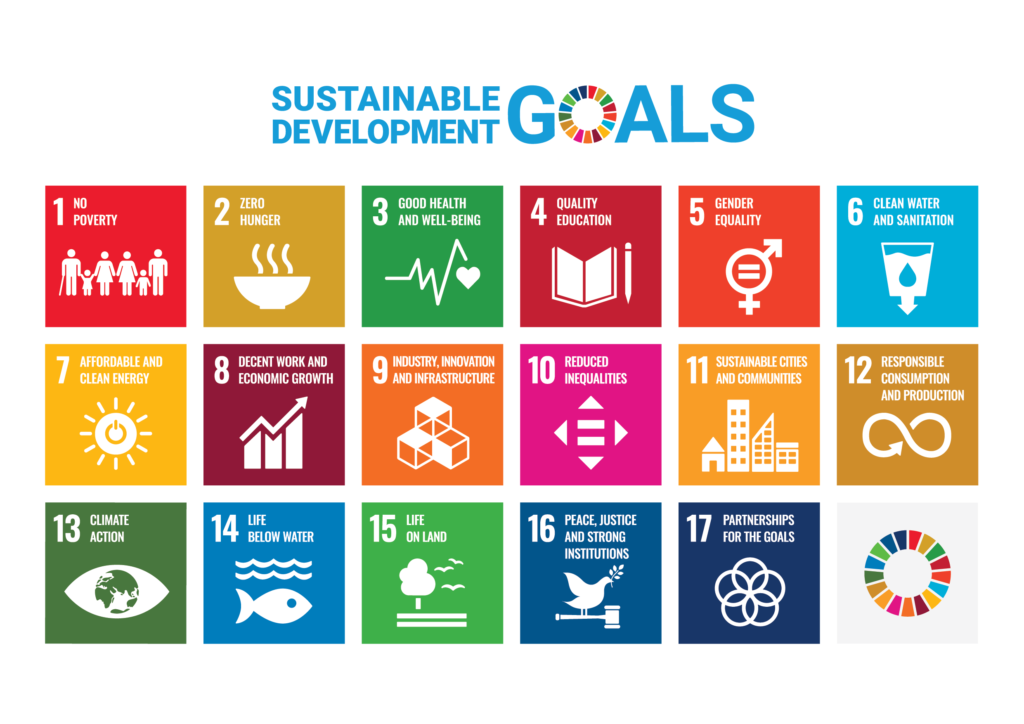
How is progress toward the Global Goals measured?
Each of the 17 Goals has specific targets and associated indicators for these targets. For example, Goal 13: Climate Action, has the target 13.3: Improve education, awareness-raising and human and institutional capacity on climate change mitigation, adaptation, impact reduction and early warning. This target has an associated indicator 13.3.2: Number of countries that have communicated the strengthening of institutional, systemic and individual capacity-building to implement adaptation, mitigation and technology transfer, and development actions.
Today, the Division for Sustainable Development Goals in the United Nations Department of Economic and Social Affairs provides substantive support and capacity-building for the SDGs. This body is tasked with making the 2030 Agenda a reality, by translating the commitments of nations and organisations into real-world actions that can be implemented around the globe. This group also plays a key role in advocacy, education, and outreach relating to the SDGs.
Each year, the UN Secretary General presents an annual UN SDG Progress Report, based on the target and indicator framework. This integrates data and information collected by UN member countries.
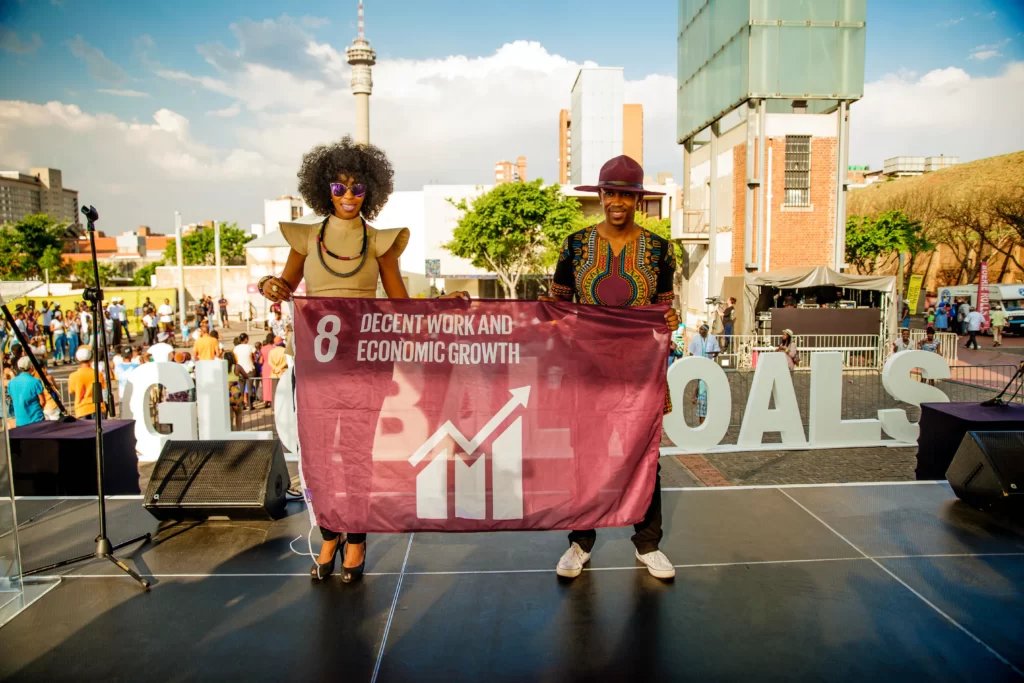
How does Carbon Neutral align with the UN SDGs?
Carbon Neutral as an organisation and through our carbon project development contributes to the UN SDGs. Our Yarra Yarra Biodiversity Corridor project measures and reports on its contributions to the SDGs by linking its impacts to the most relevant SDG target. This monitoring forms a key part of our Gold Standard certification, of which we are the only carbon project in Australia to achieve.
These contributions were identified and analysed based on existing evidence and methodological approaches that focus on quantifiable data, forming a key component of the Co-Benefits Report investigating the Corridor project.
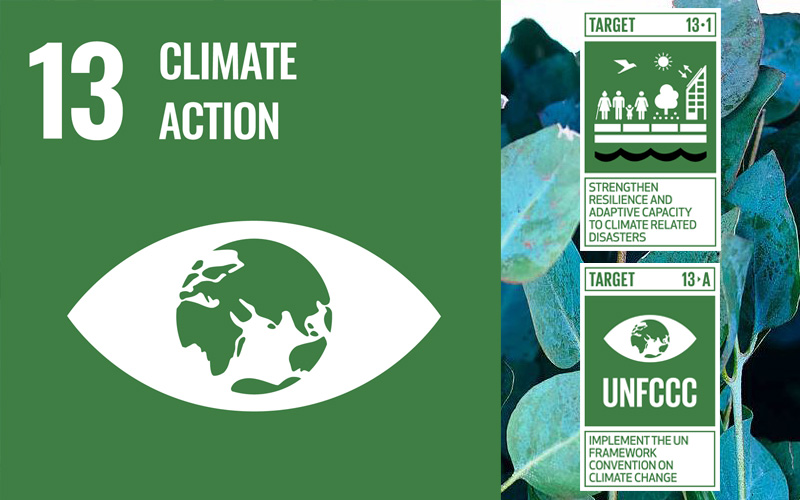
Goal 13: Climate Action
The Corridor project reconnects and restores fragmented and declining (remnant) woodland and shrubland which provides habitat for threatened flora and fauna.
Over the project’s lifetime, more than 1 million tonnes of CO2 will captured from the atmosphere by the native trees and shrubs we’ve planted so far, and we’re just getting started.
Goal 15: Life on Land
The Corridor project is situated in one of 36 Global Biodiversity Hotspots, home to thousands of endemic species prioritised for conservation.
We plant a biodiverse mix of 40-60 species to restore the Eucalpytus woodland and Acacia shrubland ecosystems that thrived in the region before they were cleared.
This is creating habitat for endangered species like Malleefowl, Western Spiny-tailed skink, and Carnaby’s Black Cockatoo.
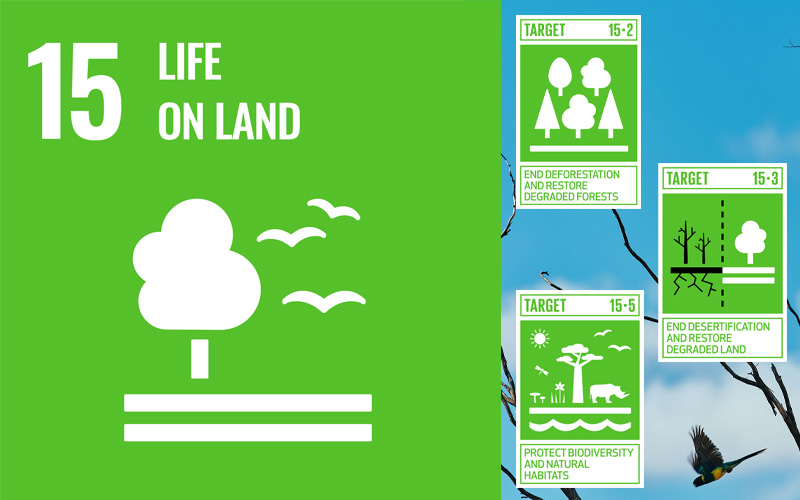
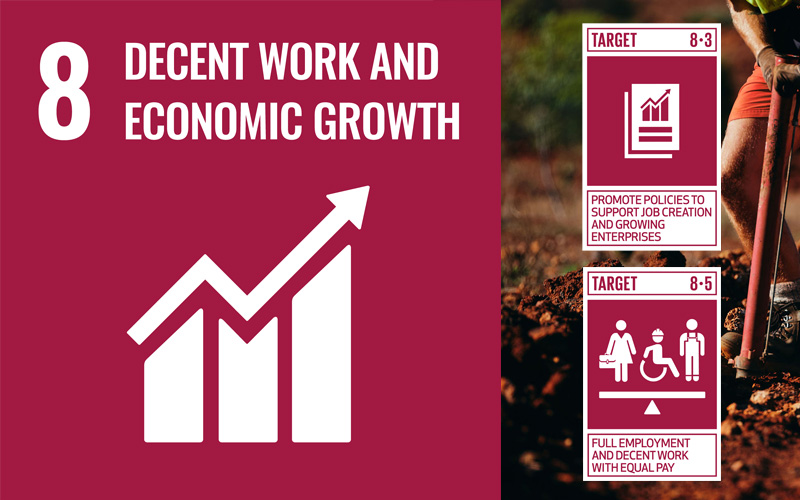
Goal 8: Decent Work and Economic Growth
Through the project and since fiscal year 2015/16, 43 FTEs have been created, allowing local workers to develop new skills and career opportunities since the start of the project. Furthermore, more than 80 local businesses have so far been engaged for goods and services as a direct result of the project.
Of the 43 FTEs employed for planting activities since fiscal year 2015/16, 9 identify as Indigenous.
Goal 6: Clean Water and Sanitation
Water quality is assumed to improve due to reduced surface runoff and reduction in sediment and nutrient loads in water catchments.
Groundwater levels and salt concentrations are also expected to reduce over time.
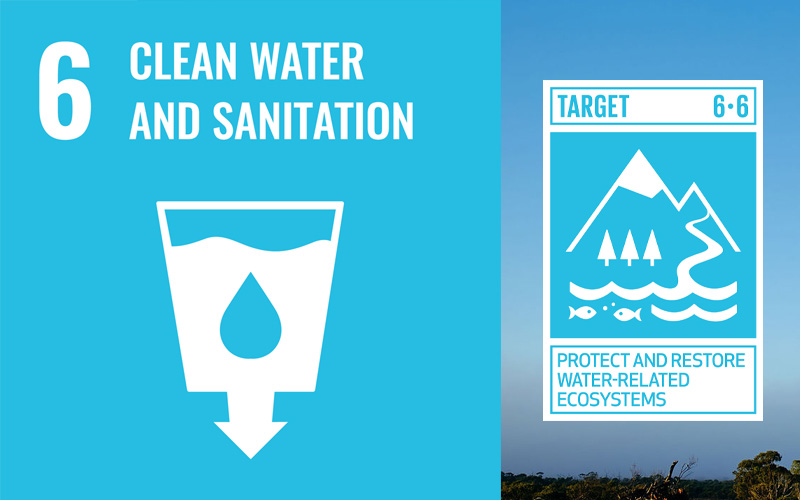
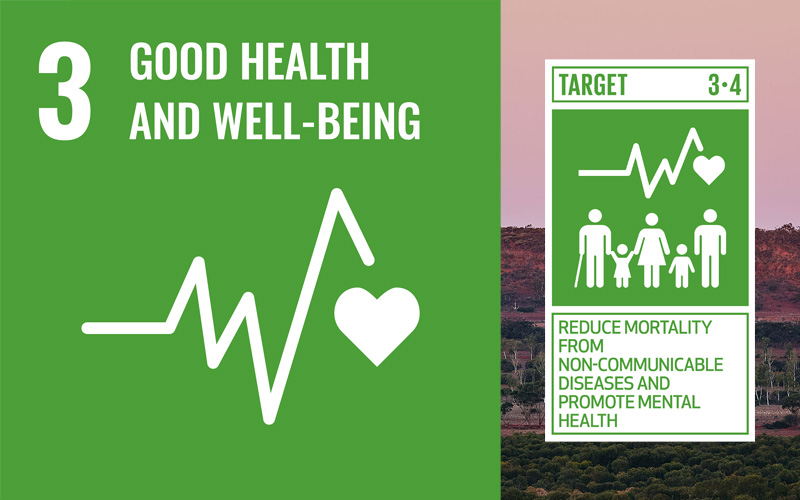
Goal 3: Good Health and Wellbeing
Through providing employment opportunities for local people, the project supports better health of local communities.
By ensuring a continued protection of culturally significant heritage sites, the project potentially contributes positively to mental health and wellbeing of Indigenous communities as it supports connection to Country which in turn can have a positive impact on the sense of belonging and identity of Indigenous communities.
Goal 4: Quality Education
The project is providing training and education opportunities for local communities by delivering induction and job-specific training sessions for the local employees. The project is also partnering with the Morawa (Regional) Agricultural College providing students with opportunities to undertake training on carbon farming, environmental management and greater awareness of climate change impacts.
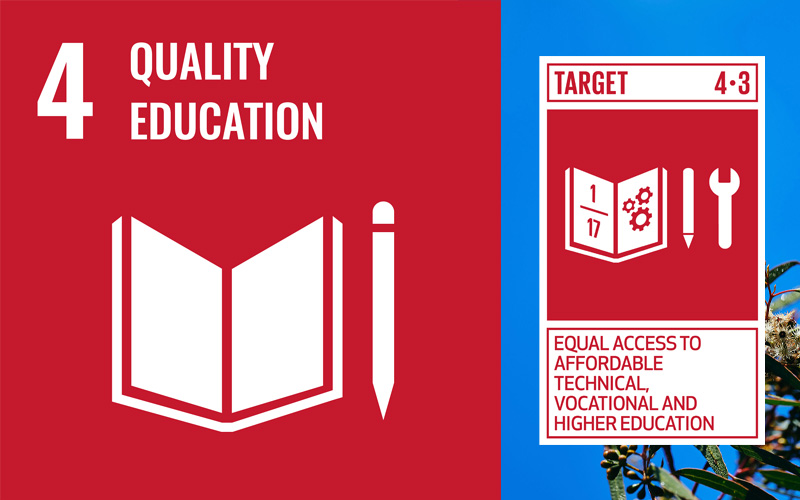
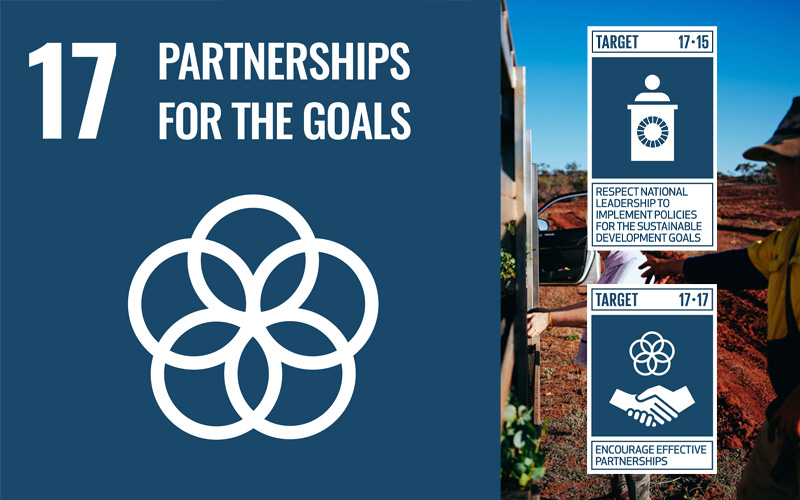
Goal 17: Partnerships for the Goals
Carbon Neutral has partnered with 11 local and national organisations including WWF, BirdLife Australia, Department of Parks and Wildlife, Bush Heritage, and Murdoch University.
Carbon Neutral has established a working agreement with Midwest Employment and Economic Development Aboriginal Corporation (MEEDAC), an Indigenous organisation focused on finding work opportunities within the shires within which the Yarra Yarra Biodiversity Corridor is found.
How can your business contribute to sustainable development?
The UN SDGs empower organisations with opportunities to demonstrate their environmental, social, and economic value they bring to their customers, stakeholders, and the wider community.
A report published by the Business and Sustainable Development Commission in 2017 shows how pursuing the SDGs could unlock USD $12 trillion in new market opportunities per year by 2030
Carbon Neutral can help you support carbon offset projects that deliver on the SDGs. Our Yarra Yarra Biodiversity Corridor project and the international offset projects we are licensed to sell contribute to different combinations of the 17 Goals.
We can help you balance your carbon footprint by supporting the projects that fits your business’ strategy and scope, such as focusing on locations or causes most relevant to them. For example, a business in the marine industry may wish to support a project that is delivering positive action to Goal 14: Life Below Water.
The UN has recommended 5 actions that all businesses can take to contribute to sustainable development:
1. Build your case
As a first step, businesses can see that the SDGs offer opportunities rather than barriers, and that business leadership and action is essential to achieving them as best and as quickly as possible. Change will not be realised without the private sector.
2. Assess yourself
Wondering how you measure up? Businesses can use the SDG Action Manager to assess your impact and identify the top risks and opportunities. Organisations can then use this define your priorities and set clear goals and targets.
3. Let the goals loose
Your organisation’s employees need to know about your mission. They don’t need to be locked to the sustainability team – everyone can have an important role in developing and implementing action. Check out this employee guide as a great example.
4. Shout it from the rooftops
Your customers and community should know how your organisation is contribution to the Global Goals. You can include the SDG icons on your website, social media, and communications materials like announcements and newsletters. Announcements can be linked to the appropriate corresponding Goal(s). Here are the branding resources to capitalise on your commitment.
5. Partner up
Partnerships are essential to achieving the Goals. There are many outstanding organisations and initiatives out there to help businesses work together, such as B Corp, SDG Compass, Business Fights Poverty, and Impact 2030.
Share This